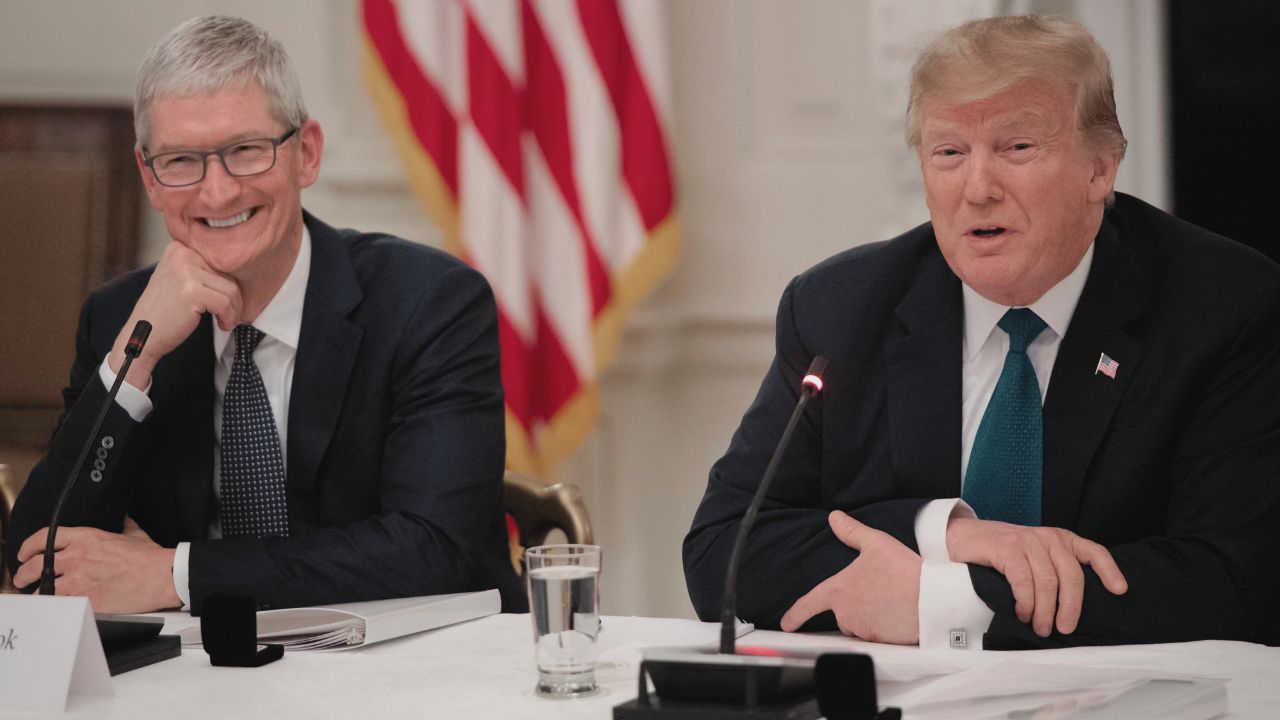In a decision that created ripples throughout the technology industry and financial markets in the past, President Trump BLASTED Apple CEO Tim Cook, demanding that iPhones made within the United States be manufactured domestically. Trump asserted that if they don’t comply, it would cause 25% tariffs on imported iPhones. The message, which was posted on Trump’s Facebook page, Truth Social, emphasizes his continued resolve to move American manufacturing and his willingness to use tariffs to accomplish this.
I have long ago informed Tim Cook of Apple that I expect their iPhones that will be sold in the United States of America will be manufactured and built in the United States, not India, or anyplace else,” Trump wrote. “If that is not the case, Apple must pay a tariff of at least 25% to the U.S. Thank you for your attention to this matter!”
The announcement of Trump coincides with the time when Apple is actively pursuing diversification of its manufacturing process and moving substantial chunks of iPhone production from China toward India. This is a move to minimize the risks that come with U.S.-China trade wars to reap the benefits of India’s increasing production capacity. Analysts estimate that Apple is currently producing around 15 percent of its iPhones in India, intending to increase this up to 25 percent before 2025.
The president’s tariff threat has raised concerns among investors and industry experts about the potential impact on Apple’s supply chain and product pricing. Wedbush analyst Dan Ives described the prospect of the possibility of domestic iPhone production as a “fairy tale,” noting that a change like this could be between 5 and 10 years and could lead to iPhone price soaring up to $3500.
Financial markets reacted swiftly to Trump’s announcement. The stock of Apple fell 2.6 percent, contributing to the overall market slump which witnessed the S&P 500 as well as Nasdaq fall by 1.1 percent and 1.3 percent in the same time. European markets, too, suffered significant losses, which reflected investor fear regarding the escalating tensions in trade.
Moving iPhone production back to the United States presents substantial challenges. It’s a pity it is that there is a problem that the U.S. lacks the extensive infrastructure and skilled workforce needed to produce huge-scale mobile phones. The financial implications can be significant. According to analysts, moving 10 percent of Apple’s supply chain into U.S. U.S. could cost $30 billion and will take around three years.
Apple has yet to issue a public response to Trump’s ultimatum. Apple has traditionally kept a low-risk approach to issues of politics and is instead focused on its business plan for the world. The possibility of a 25% tax on imported iPhones might force Apple to review its production strategies and logistics of its supply chain.
A broader trend toward protectionist trade policies aimed at reviving American industry includes Trump’s most recent threat to impose tariffs. Citing the sluggish progress in trade discussions, Trump announced a proposed 50 percent tax on the whole spectrum of European Union goods in addition to the levy for Apple. The move has raised worries about the possibility of a trade war as well as its ramifications on the world economy.
This stance of the president shows his long-standing distrust of globalization as well as his conviction that the value of local manufacturing is for national security as well as economic growth. In urging companies like Apple to produce their items within America U.S., Trump aims to lessen dependence on supply chains from abroad and also create American employment.
Some critics believe that these policies could result in unintended effects, such as more expensive consumer prices as well as strained relations with the international community. They claim that the complexities of supply chains across the globe and the economic complexities of production make it impractical to require domestic production for every product.
While the dispute unfolds, everyone from the tech sector, government, and consumer-focused organizations will be keeping an eye on developments. The outcome of this conflict will have a profound impact on the policy of trade, manufacturing practices, as well as the direction of globalization.
Meanwhile, customers might be in a state of uncertainty about iPhone price and availability, while Apple faces the challenge of balancing the demands of politics with its international business operations. Apple’s reaction to President Trump’s demands could influence its direction for the future over the next few years, as well as influence wider trends within the industry.
The tension that exists between business and political reality highlights the complex nature of today’s supply chains as well as the difficulties of implementing protectionist policies within the globalized world economy. When policymakers and leaders from industry confront these challenges and challenges, the need for more multifaceted, cooperative solutions becomes more apparent.

